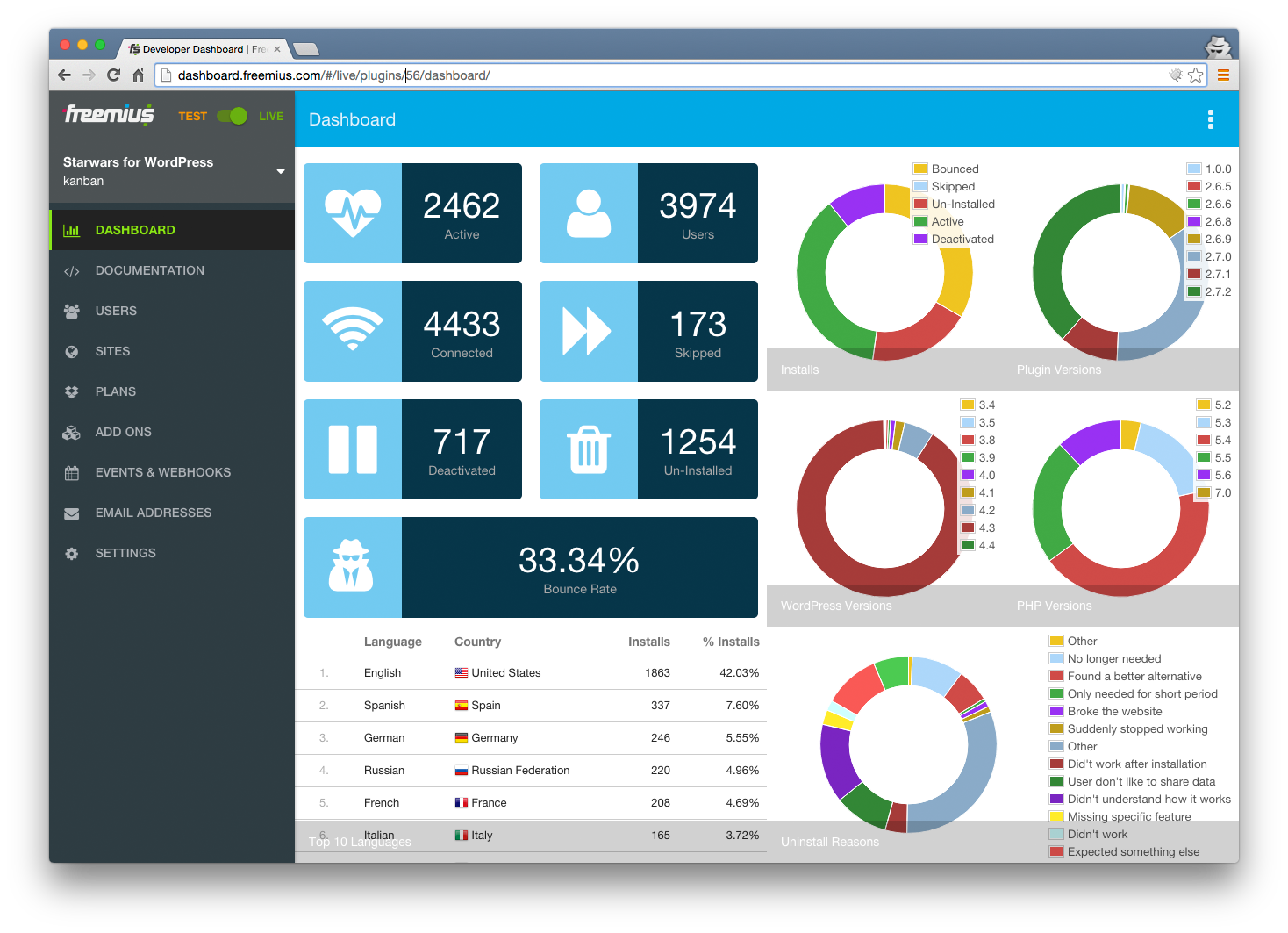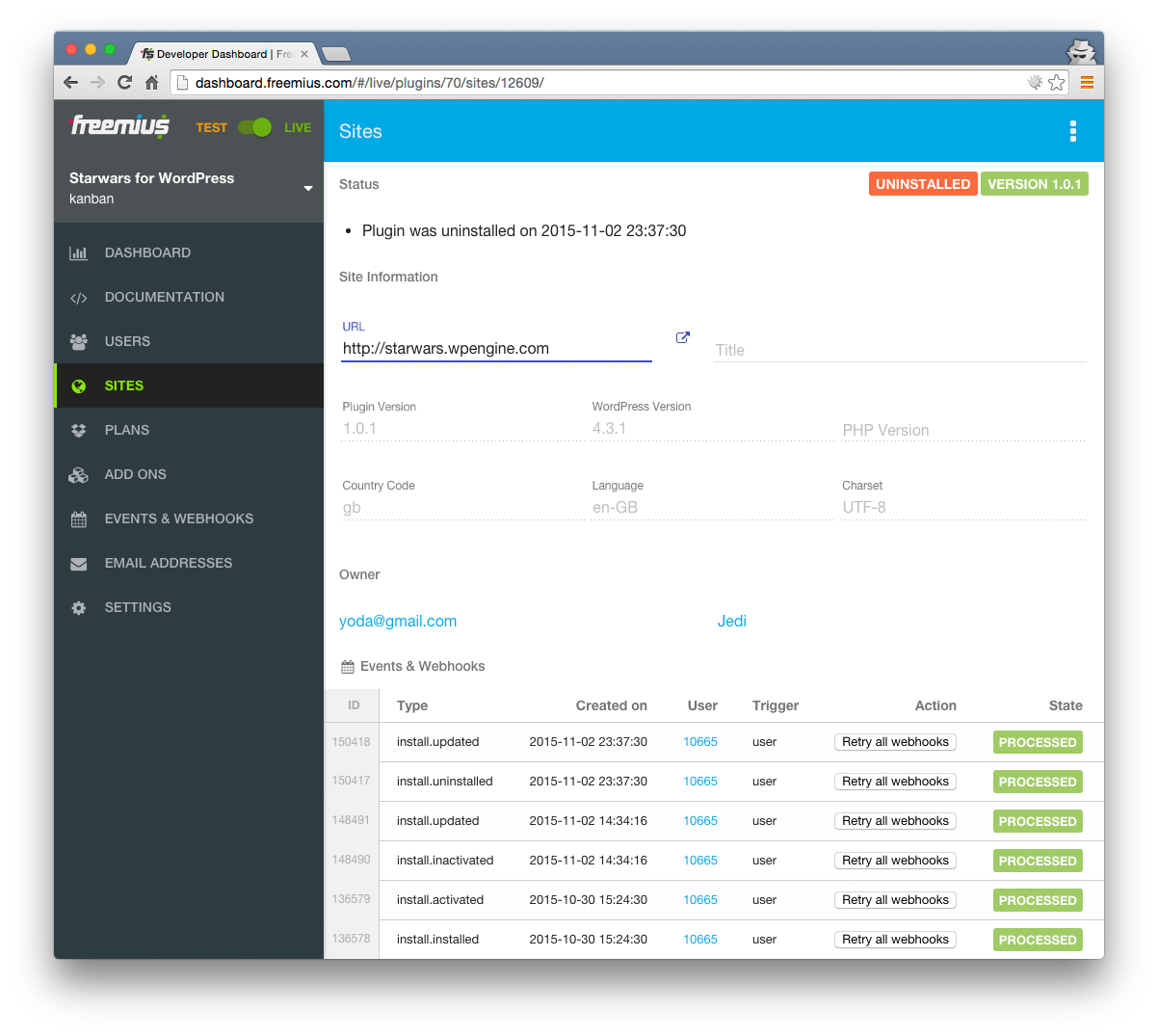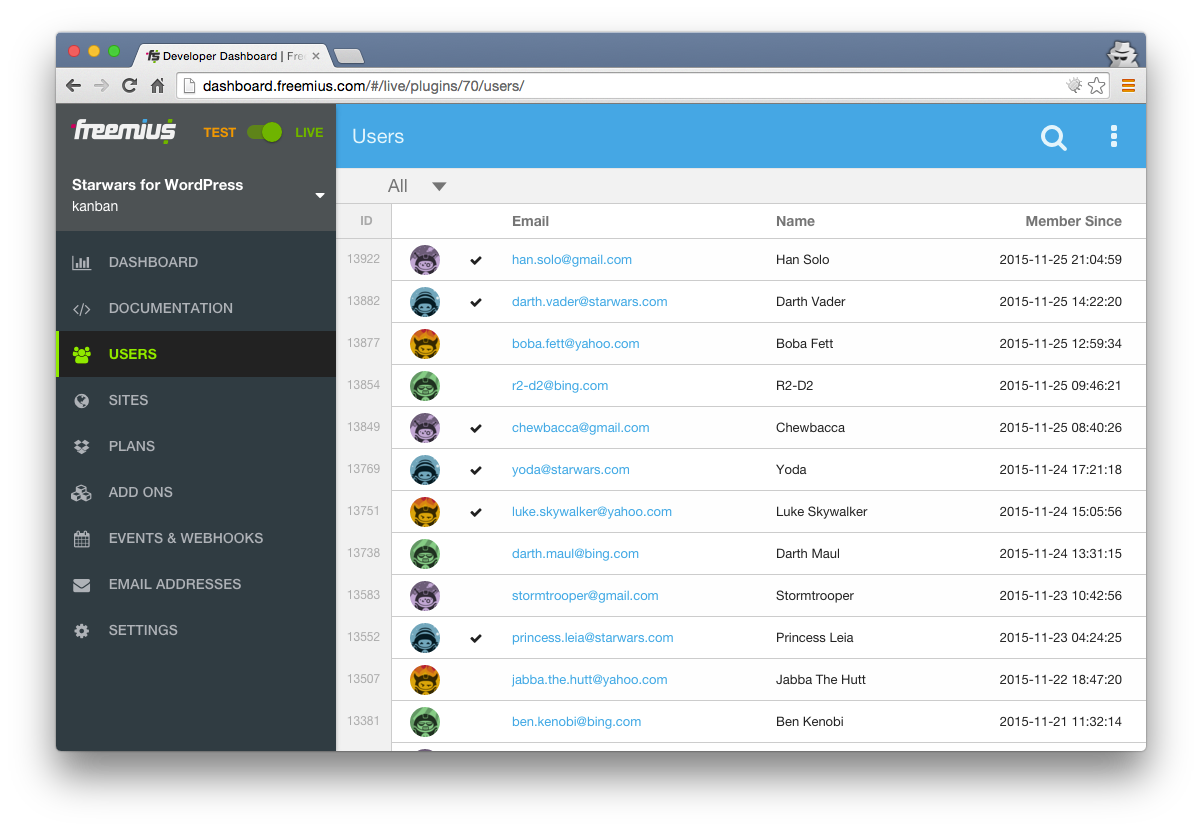The WordPress plugin directory gives authors a set of statistics but many are left wanting more. Freemius Insights, is a new service founded by Vova Feldman, that allows authors to accumulate detailed statistics from users.
Feldman and his team of four, created the service after speaking to more than 100 plugin developers and realizing there’s a huge gap between what WordPress authors have in terms of data, compared to what web and mobile products have in the market.
Up Front Opt-in
According to the WordPress plugin directory guidelines, plugins are not allowed to phone home. That is, secretly send data without the user’s consent. Freemius Insights provides an opt-in form that displays immediately after activating a plugin. If a user skips this step, data won’t be sent to the author and the user is forwarded to the plugin’s settings screen.

The opt-in form is compatible with the plugin directory’s guidelines and is an easy way to be up front and honest with users that data is sent to a third-party.
Data Collected by Freemius Insights
If a user clicks the allow and continue button in the opt-in form, the following data is collected by Freemius Insights.
- Active Sites
- Users
- How many users are connected to Freemius
- How many users deactivated the plugin
- How many users uninstalled the plugin
- Plugin versions
- WordPress versions
- PHP versions
- Reasons for uninstalling
- Top 10 languages
Developers can use the Insights dashboard to see compiled data at a glance.

This type of information helps developers make critical decisions such as what new features to work on, backwards compatibility, what translations to focus on, and more.
See Which Sites Are Using Your Plugins
In addition to these stats, developers can see which domains the plugin is activated on. Knowing the sites a plugin is activated on is valuable data. For example, if a plugin is used on Microsoft.com, the developer can leverage that information to possibly establish a one to one relationship. Developers can also create up sells to those specific sites.

Freemius Insights also uses this data to automatically send an email if a user uninstalls the plugin within the first hour after installation. The email template is personalized with the user’s name and site address. It asks for feedback on how the plugin can be improved or why it didn’t meet their needs.
Developers can even dive deep into a site’s activity and view recent events associated with their plugin such as updates, installs, activation, and who initiated the action. You can see the site’s language, PHP version, and a variety of other data.

If you want to know the names of the people who opted in, you can see that too. Since Freemius Insights collects a user’s email address, developers can interact with users on an individual level instead of broadcasting emails.

Receiving Feedback at a Critical Time
One of the most annoying things plugin developers face are one star reviews with no explanation behind the review. Based on data collected during the beta testing process, Feldman discovered that more than 20% of the users who install a plugin will uninstall it within the first 15 minutes.
Freemius Insights has a Deactivation Feedback Form. This form appears when a user deactivates the plugin and gives users an opportunity to explain why they deactivated it.

This could be annoying if you’re deactivating a plugin to troubleshoot WordPress but Feldman explains why the form is tied to the deactivation procedure, “Once the user deactivates the plugin, the plugin can’t modify anything in the dashboard.
The data is not sent until the plugin is deleted. If the user provides feedback, it’s stored locally in the database. When a user proceeds with the deletion process, it fires the uninstall hook and sends the data to the server,” he said.
Reasons Why Users Uninstall a Plugin
In general, people give negative feedback more than positive. During the beta testing period, Freemius Insights witnessed more than a 82% conversion rate with the feedback form. This data is invaluable to developers and can be viewed on the Insights dashboard.

Although Other is not helpful in this chart, it’s valuable because it represents how many users chose to provide custom feedback. It reinforces the fact that users are more than willing to tell developers what’s wrong if given the opportunity. Developers can also filter sites by Uninstalls to get a deeper understanding as to why a specific user uninstalled the plugin.
Webhooks for Developers
Freemius Insights has a webhooks mechanism built-in that enables developers to forward events to another location. For example, when a user installs a plugin, the developer can push the user’s email address into MailChimp. Another example is when a user upgrades a plugin, you can send them an email that lists new features in that version.
Free and Paid Subscription Plans
Freemius Insights has a free plan available to developers of free plugins. The free plan includes an unlimited amount of team members and captured users, but no email export. Paid plans start at $29.99 a month up to $299.99 a month depending on your install base.

If you’re interested in connecting your plugin to Freemius Insights, you’ll need to request a hands-on demo with the team. Feldman explains the benefits of a hands-on approach:
- We want to be in control of our scale. Analytics requires a significant amount of storage and performance. If one of the most popular plugins joins the service without a heads up, it might drain our server’s resources and affect the performance of the rest of our users.
- FTUE (first-time user experience) is crucial for every service. Signing into an empty dashboard might make the wrong impression, and we know the first impression is critical. Therefore, we prefer to demo the platform by showing real data from our plugin.
- We believe the personal touch is more than a cliché. We are willing to spend time getting to know each developer we work with, building a personal relationship, and making sure every integration is a success story. We also love to learn new things, and user feedback is extremely valuable to us.
Feldman says Insights is for plugin developers who want to make data driven decisions, “Freemius Insights provides ad-hoc data so developers don’t have to base decisions on gut instinct.”
Out of Beta
Freemius Insights is out of beta and today marks the first opportunity the public has to see Insights in action. I’ve only scratched the surface of what’s possible and how developers can leverage the data collected by the service. Again, if you’re interested in using Freemius Insights, schedule a demo with the team as spots will fill up quickly.
This looks like a fantastic product. Cheers to the team behind it. It’ll be very interesting to see how users react to it but I think we’ll probably give it a try for Postmatic and Epoch both. The trick of course is going to be in who opts in and who does not.
My hunch is that the type of users that would quickly discount (and one star) a plugin without really digging in are the same group that wouldn’t opt in. And that’s probably fine, because those are the users that wouldn’t likely convert to paying customers anyway.
But for the kind of users we want to have as paying customers (who would likely opt in with the right language and understanding) this will be fantastic. It’ll really help us understand where the trouble spots are. I’m going to dive in.